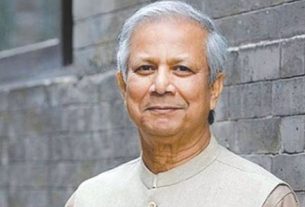New Delhi — The Supreme Court on Wednesday directed all co-accused in two high-profile cases involving Yasin Malik to submit their responses within two weeks regarding the Central Bureau of Investigation’s (CBI) request to transfer the trials. The cases, which have significant political and legal ramifications, will be taken up for hearing on January 20, 2025.
A bench comprising Justice Abhay S. Oka and Justice Augustine George Masih observed during the proceedings that one of the accused in the cases is deceased. The bench emphasized that any decision on transferring the trials would necessitate input from all surviving co-accused.
Proposal for Jail Courtroom
The Supreme Court had earlier floated the idea of establishing a temporary courtroom within the premises of Tihar Jail, where Malik is currently incarcerated. This proposal aimed to ensure the smooth conduct of the trial while minimizing security risks. The bench reiterated the importance of upholding the principles of a fair trial, drawing a parallel to the due process afforded to Ajmal Kasab, the convicted perpetrator of the 26/11 Mumbai attacks.
The observation came while the court considered the CBI’s challenge to a Jammu court order that mandated Malik’s physical presence during trial hearings.
Security Concerns Over Malik’s Transportation
Solicitor General Tushar Mehta informed the court about an existing fully functional courtroom within Tihar Jail, complete with video conferencing facilities, which has been previously used for similar cases. Mehta stressed that the CBI prefers to avoid transporting Malik to Jammu and Kashmir, citing heightened security concerns.
The CBI’s appeal challenges the production warrants issued by the Additional Sessions Judge, Jammu (TADA/POTA), on September 20 and 21, which sought Malik’s presence for cross-examination of witnesses in two separate cases.
High-Profile Cases Involved
The cases involve the 1989 murder of four Indian Air Force (IAF) personnel and the abduction of Rubaiya Sayeed, the daughter of former Union Minister Mufti Mohammad Sayeed. These incidents, emblematic of the militancy era in Jammu and Kashmir, have drawn national attention due to their historical and political significance.
The Supreme Court had earlier stayed the Jammu court’s order requiring Malik’s physical presence. During previous hearings, SG Mehta raised concerns about potential risks, including Malik attempting to escape, being forcibly taken, or facing assassination.
Ministry of Home Affairs Intervention
Mehta referred to an order issued under Section 268 of the Criminal Procedure Code by the Ministry of Home Affairs, which prohibits Malik’s removal from jail for security reasons. This directive underscores the government’s apprehension about the safety implications of transporting a high-profile convict like Malik.
Broader Implications
The legal and logistical challenges surrounding Yasin Malik’s trial highlight the intricacies of prosecuting cases linked to terrorism and militancy while ensuring due process. As the Supreme Court gears up to make a decision, the outcome could set a precedent for handling similar cases in the future.
4o





